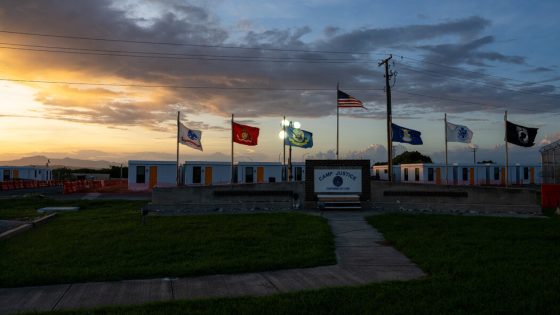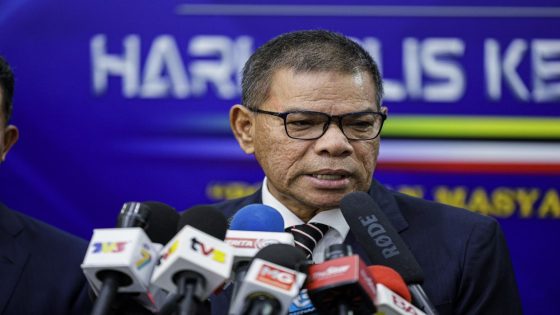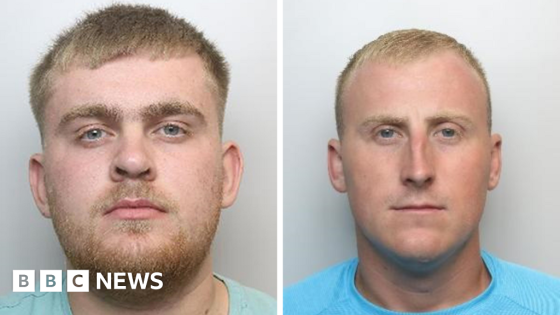A military jury on Wednesday began deliberating a sentence for an admitted war criminal at Guantánamo Bay after prosecution and defense lawyers portrayed the prisoner as, alternately, a senior member of a global Qaeda conspiracy or a battlefield commander defending Afghanistan from the U.S. invasion.
Many of the U.S. officers serving on the 11-member panel are themselves veterans of the U.S. wars in Afghanistan and Iraq. How they view the crimes of the man called Abd al-Hadi al-Iraqi could influence the length of his sentence, and whether they heed his lawyer’s request to recommend clemency.
The closing arguments focused on the battlefield in wartime Afghanistan, in contrast to the court’s better known cases, the Sept. 11, 2001, attacks and the U.S.S. Cole bombing in 2000, which are portrayed as acts of terrorism.
Mr. Hadi, 63, who was captured in 2006, pleaded guilty in 2022. Under the terms of his agreement, he is to receive a sentence in the 25- to 30-year range. But he could be released to the custody of a trusted country, if one can be found that will give him specialized care for a paralyzing spine disease that has left him disabled.
Douglas J. Short, the lead prosecutor, called Mr. Hadi a “senior member of one of the most notorious conspiracies to date, Al Qaeda,” who joined the movement before the Sept. 11 attacks and did not give up the fight when the United States invaded. Mr. Short said that Mr. Hadi put civilians in harm’s way in a campaign of suicide bombings and other operations in the early 2000s in Afghanistan, when the United States was pursuing a “hearts and minds” strategy.
He offered a timeline of the deaths of 17 U.S. and foreign coalition soldiers in 2003 and 2004. They were war crimes, he said, because the Taliban and Qaeda forces who carried them out blended in with the civilian population and used unorthodox methods of warfare, such as turning civilian taxis into bombs by packing them with explosives.
“He had his men feign civilian status to invite confidence, and then betray that confidence,” Mr. Short said, adding that Mr. Hadi had served as Qaeda’s senior field commander for a time in Afghanistan and had relied on the support of Osama bin Laden.
The case has been in pretrial proceedings for a decade, so long that Mr. Short’s time as a Navy reservist ran out. He continued to prosecute it as a civilian, trading his uniform for a business suit.
In the course of the case, the prisoner revealed that his true name was Nashwan al-Tamir, although he did not dispute that he was known as Hadi, the Iraqi, while he was in Afghanistan.
In contrast, Maj. Lucas R. Huisenga, the lawyer who argued the defendant’s side, joined the defense team last summer. He served two tours in Iraq between 2003 and 2006, as an enlisted Marine infantryman and scout sniper, and then left the service to become a lawyer.
Major Huisenga told the jury that what Mr. Hadi had done “was not terrorism — it was war.” Mr. Hadi “fought and killed coalition forces” using guerrilla tactics that violated the laws of warfare, he said.
He called his client’s crimes “serious” but said that Mr. Hadi “did not abandon” the rules of warfare entirely and instructed his troops to spare civilians.
He described Mr. Hadi as a “broken man” who, as a result of his spine disease and unsuccessful surgeries at Guantánamo, is in “terrible physical health” and in constant pain. He “walked into U.S. custody and will not be able to walk out of it.”
In an analogy not heard before in the 10-year-old case, the major likened Mr. Hadi’s “guerrilla warfare” to tactics used by U.S.-backed Ukrainian forces trying to repel the Russian invasion. Major Huisenga also told the panel that Mr. Hadi had fled his native Iraq in 1990 and had been drawn to the jihad in Afghanistan during the Soviet invasion, when U.S.-backed, anti-communist forces also used guerrilla tactics.
He portrayed Mr. Hadi as a combatant who, after marrying an Afghan woman and having children, lived among Afghans, not in Qaeda compounds. When the Qaeda leadership fled Afghanistan after the Sept. 11 attacks, Mr. Hadi stayed to fight the “occupation of his adopted homeland,” Major Huisenga said.
The members of the jury — U.S. Army, Marine and Air Force officers — were airlifted to Guantánamo from bases across the United States and had earlier heard the testimony of victims of attacks by Mr. Hadi’s forces and a statement from the prisoner.
Source Agencies



